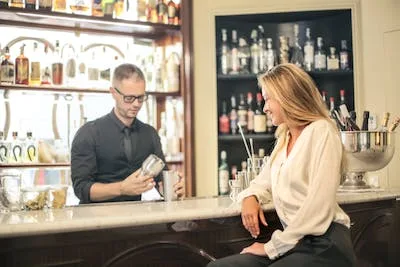A Comparative Analysis of New York’s Alcohol Laws and Other States
Image source: Pexels.com
If you enjoy drinking, you may be interested in learning how various states manage the manufacturing, distribution, and use of alcoholic beverages. I’ll evaluate the differences between New York’s alcohol laws and those of a few other US states in this blog post. You will discover the legal drinking age, when pubs and restaurants close, whether alcohol is sold in grocery shops, and other information. Come on, let’s get going!
Which state’s legal drinking age is that?
The lowest age at which someone can lawfully buy and consume alcohol is known as the legal drinking age. States are required by the National Minimum Drinking Age Act of 1984 to establish their legal drinking age at 21 or else they will not be eligible for federal transportation money. Some states do, however, contain exclusions for specific circumstances, such as private property, parental consent, or religious rituals.
The legal drinking age in New York
One of the states that adheres closely to federal law is New York. Underage drinking is illegal in New York, regardless of whether it occurs on private premises or with parental permission. If someone under the age of 21 is found to have consumed alcohol or in possession of it, they may be subject to penalties, community service, or license suspension.
Legal drinking age in other states
Underage drinking is permitted in several states due to their laxer laws. In Ohio, for instance, children may consume alcohol in public areas as long as they are accompanied by a parent, guardian, or married couple who is at least 21 years old. In states like Oregon and New York, children are permitted to consume alcohol on private property—like a friend’s home or a hotel room—that does not sell alcohol. For religious holidays like Passover and communion, minors are permitted to consume alcohol in Tennessee and Washington.
In what states do restaurants and bars close?
The hours during which bars, restaurants, and other establishments that offer alcohol are known as closing times. States and occasionally counties or cities have different closing schedules. they are usually determined by local authorities or state liquor boards.
The closing hours in New York
The city of New York is renowned for its exciting nightlife and late closing hours. For the most part, there are just four hours in New York from Monday through Saturday during which alcohol may not be served: 4:00 am until 8:00 am. There is a six-hour window on Sundays from 4:00 a.m. to 10:00 a.m. On the other hand, some counties or cities might close earlier—at 1:00 or 2:00 a.m.
The closing hours of other states
Some states have more stringent closing hours, which typically run from 10:00 p.m. to 2:00 a.m. For instance, Utah closes daily at 10:00 p.m., the earliest closing time in the United States. Texas, Florida, and California all close at 2:00 a.m. on a daily basis. Certain states—Nevada, Alaska, and Louisiana, have no statewide closing time and allow local jurisdictions to decide.
Can you purchase alcohol in different states’ grocery stores?
The range of alcoholic beverages, including wine, liquor, and beer, that grocery stores are able to stock is known as their availability of alcohol. Some states let grocery stores to sell any kind of alcohol, while others limit or forbid the sale of specific kinds.
Is alcohol available in grocery stores in New York?
One of the states with a partial restriction on the selling of alcohol in grocery shops is New York. Only beer and wine goods, including sake, mead, and hard cider, are allowed to be sold in grocery shops in New York. Wine and spirits are off limits to them. Wine and liquor can only be sold in licensed liquor stores, which are limited to one per owner and must close by midnight.
Food stores in other states that sell alcohol
varied states have varied laws governing the sale of alcohol in supermarkets. A few states, like Arizona, Colorado, and New Jersey, let grocery stores to sell any kind of alcohol; however, the number of licenses or locations that an owner may have is restricted. Some jurisdictions, like Pennsylvania, Kansas, and Oklahoma, limit grocery stores’ ability to sell alcohol to low-alcohol wine or beer, or else mandate that they have a separate checkout and door for alcohol sales. Grocery stores are not permitted to sell alcohol in any state, including Montana, Utah, and Mississippi.
conclusion
As you can see, New York has very varied alcohol laws than other states in the United States. There may be differences in laws and policies governing the buying and using of alcohol depending on where you reside or visit. To avoid any issues or disappointments, it’s a good idea to research the local regulations before to drinking. Toast!





0